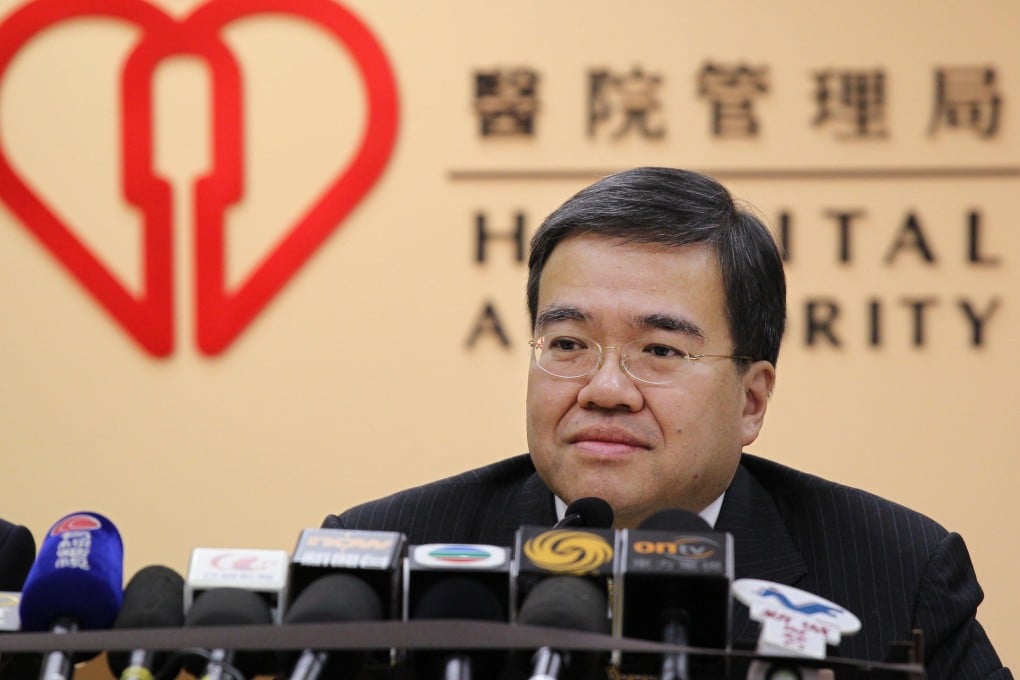Lai See | Anthony Wu found guilty of professional misconduct
Just in case you missed it, which would not have been hard since it was released on the evening of December 24, the Hong Kong Institute of Certified Public Accountants (HKICPA) announced that former chairman of the Hospital Authority Anthony Wu Ting-yuk had been found guilty of professional misconduct. It seems an odd time to release information of such significance unless you were trying to bury it. But we are told the timing was a coincidence since the HKICPA only received the report from the disciplinary committee on the afternoon of December 24. However, this is a case that has been fraught with delays.

Just in case you missed it, which would not have been hard since it was released on the evening of December 24, the Hong Kong Institute of Certified Public Accountants (HKICPA) announced that former chairman of the Hospital Authority Anthony Wu Ting-yuk had been found guilty of professional misconduct. It seems an odd time to release information of such significance unless you were trying to bury it. But we are told the timing was a coincidence since the HKICPA only received the report from the disciplinary committee on the afternoon of December 24. However, this is a case that has been fraught with delays.
Wu's professional misconduct relates to the collapse of the New China Hong Kong Group (NCHK) in 1999, owing creditors some HK$1.5 billion. It spawned a string of court cases, some of which were still in process in 2011. The HKICPA's action also includes two other defendants, Ernst & Young and Catherine Yen Ka-shun, a senior figure with Ernst & Young. Wu was managing partner of Ernst & Young's China business in 1996, before becoming deputy chairman of the firm in 1998 and chairman in 2000, a position he held until the end of 2005.
The HKICPA's proceedings against these defendants have been protracted to say the least. It took two years for it to decide if the complaints against the trio merited a disciplinary investigation, and then almost two and a half years to investigate the case before it was heard in May 2013, making it far and away the institute's longest-running case. It then took almost eight months for a report on the findings to be prepared. The saga is not over yet as the announcement usually coincides with the determination of sanctions and the reasons. This usually takes a month to decide but we are not holding our breath. Wu has told the press he may appeal against the disciplinary committee's findings in court, which could either confirm or reverse the findings. NCHK was formed with considerable fanfare in 1993 by a consortium of investors from Hong Kong, the mainland and Singapore and was chaired by Tsui Tsin-tong. During this period Wu was financial adviser to NCHK and Ernst & Young was auditor to NCHK.
The HKICPA's statement said Wu was found guilty of professional misconduct in failing to observe the independence requirements of the institute "in participating in the management of the company and/or otherwise having an involvement with the company and its subsidiaries whilst also a senior partner of EY who acted as auditors of the company."
The statement said that Wu should have taken more care to maintain the appearance of independence. "Instead Anthony Wu remained (a) as a member of the Executive Committee of an audit client, (b) was an authorised signatory to almost 13 bank accounts of the group company (a function usually perceived to be one of management), (c) had personal dealings involving considerable sums of money with the company's subsidiaries who were also audit clients of EY, (d) whilst at the same time a significant retainer was being paid to EY for Anthony Wu being the financial adviser, (e) making loans either personally or indirectly through a third party company to an audit client."
In addition, both Ernst & Young and Yen were also found guilty of "failing or neglecting to observe, maintain or otherwise apply a professional standard" and "failing or neglecting to maintain a professional standard."
